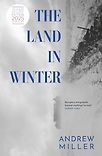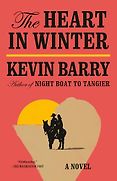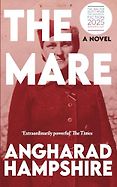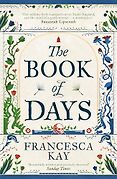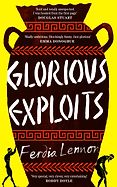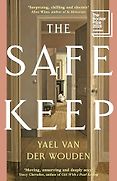Great to be speaking to you again about the shortlisted books for the 2025 Walter Scott Prize for Historical Fiction. Did you notice any trends among the historical novels submitted for consideration this year?
No! Isn’t it wonderful! There are book trends, of course. No shortage of cosy crime or fantasy series. But the best historical fiction writers plough their own furrows.
For the benefit of readers joining us for the first time, perhaps you’d remind our audience how you define ‘historical fiction‘ and why?
Our definition of ‘historical’ is Sir Walter Scott’s designation of “sixty years hence.” We are the Walter Scott Prize, so our books—or at least 50% of any book, as some books flip between different times—must be set at least 60 years in the past. To qualify for this year’s prize, books submitted to the judges must be set before 1964.
Let’s look first at Kevin Barry’s The Heart in Winter. Can you tell us about the plot, and when it is set?
This is a wild love story set in a mining town in 1890s Montana. Tom Rourke, a degenerate hard-liver with a poetic imagination, falls for Polly Gillespie who arrives as the bride of the self-flagellating religious fanatic Captain Long Anthony Harrington. Tom and Polly are twin souls, living life to the full. It’s a stormy ride of a book.
Why do the judges admire it?
Kevin Barry can conjure up a street, a scene, a person, in a couple of words. The story he tells roars along like a Montana river in full spate. And there’s no shrinking. Barry follows his story with a twinkle in his eye, a gift for language and absolute, unblinking vigour. Plus, as David Mitchell observes on the cover of the hardback, The Heart in Winter includes—arguably—the finest American frontier magic mushroom scene in the Western canon.
Next we have Angharad Hampshire’s The Mare. It’s based on a true story. Perhaps you’d talk us through it.
Essentially, this novel asks the reader many uncomfortable questions about responsibility. When does it rest with others? When does it rest with you? Hermine Braunsteiner is a New York suburban housewife whose past as an ambitious female Nazi concentration camp guard catches up with her. The reader watches Hermine’s post-war American life, and that of her faithful husband, unravel. The book time-travels and has two narrators: we see the German camps through Hermine’s eyes, and we see Hermine through her husband’s eyes.
Why is it one of the best historical novels of 2025?
Well, on a technical level, Angharad Hampshire has a perfect understanding of structure. Time travel is difficult but she achieves the moves seamlessly: the reader is never lost. Her characters are unshowy yet absolutely stick with you. I can see Hermine. I can see Russell. They are complete human beings. So many writerly pitfalls lurk when writing about the death camps. Angharad Hampshire falls into none of them. Her writing is plain and direct, and her control makes the story she’s telling all the more compelling and disturbing.
I was excited to hear that Francesca Kay’s The Book of Days is set in 16th-century England—I’m very fond of books that take us far enough back into the past that there’s a certain culture shock. Can you tell our readers what they can expect of this book?
I’d advise readers to sit with this book, sit and breathe, as we might sit and breathe with a Book of Hours. The story is tense and full-bodied – you want to know what happens. At the same time, with the skill of a weaver, Francesca Kay depicts the passing seasons, both natural and liturgical, without fanfare but with much beauty. Drawn into the little rural community, the reader also witnesses the building of a chantry, that is, a chapel endowed by the founder to pray for his or her soul, or the souls of others ‘in perpetuum.’ The poignancy of building a chantry in the religiously perilous sixteenth century!
The culture shock is, I suppose, that despite many upheavals, religious faith underpinned every facet of life in western Christendom until, say, the scientific discoveries and growing religious scepticism of the late nineteenth century. For twenty-first century readers, whose faith in everything is shaken on a daily basis, it’s almost impossible to imagine such entrenched certainties. Through prose that glints like a stained-glass window, Francesca Kay offers a glimpse of that vanished world. In novel terms, this may be as near to the sixteenth century as we’re ever going to get.
Ferdia Lennon had to travel, mentally, even further back in time to write his Glorious Exploits, set during the Peloponnesian War. Do you think it’s harder to write historical fiction the further back in history it goes?
In some ways, the further back in history you go, the easier it is to write because you have more latitude with facts, tone, speech, really almost everything. Also, the further back you go the harder it is to prove an author wrong, though it doesn’t stop some readers from trying. As a writer you have a different, and in some ways more daunting, challenge: to try to recreate lives, mindsets and experiences which are, if we’re being truthful, pretty unknowable. You can copy a picture from a Grecian urn and that’s fine, but if you try and write like, say, Homer, you just sound like somebody trying to write like Homer.
Ferdia Lennon most emphatically does not do that! He has launched out in a way that to most authors would feel foolhardy but he has turned into a triumph. With no preamble, he presents us with an informal, chatty Syracuse of 412 BC. He can see the place and hear the tone so clearly in his head that the reader, whilst knowing perfectly well that both tone and story are fiction, never doubts him. That’s quite a feat.
We spoke to Lennon recently, after he won a high profile prize for comic fiction for this book. Is it unusual for historical fiction to be funny?
Such a good question! It’s easier to be funny in ‘factual’ history books, isn’t it, for example The Horrible Histories and 1066 and All That. I’d say historical fiction is more witty than outright funny. From Walter Scott through the Asterix series to the Blackadder scripts we find witty banter and comical situations. Ferdia Lennon offers a different kind of humour, unique – at least I’ve never read anything quite like it before. Startling, too, particularly to the modern reader to whom the whole notion of finding any humour in the dumping of your enemy prisoners in quarries and leaving them to boil in the day, to freeze at night and to starve all the time might be troubling, to say the least. What we’re really offered in Glorious Exploits is, I suppose, a tragi-comedy, with the emotional complexity that that particular brand of humour brings with it.
Andrew Miller’s The Land in Winter is next on your 2025 shortlist of the best new historical fiction. Can you tell us about the book?
In choosing the winter of 1962 when, for some weeks, life in Britain paused, suspended in heavy snow, Andrew Miller has subtly identified a moment – perhaps the moment – when we shifted from looking backwards to the Second World War which, for so many, was still the defining event of their lives, towards the future. People were still finding, and some losing, their post-war way; the sixties were not swinging yet. Down in the West Country, where The Land in Winter is set, we experience this Janus moment, this pause, this snow-suspension, with two couples negotiating themselves and their marriages. Intense, immersive and beautifully paced, we move with Bill and Rita and Eric and Irene towards an uncertain spring.
Miller has been shortlisted several times for different historical novels. What is it about his writing that makes him so good?
Is it the way that like a great piece of music you’re hardly aware of the work that lies behind Andrew Miller’s novels? Is it the details he chooses to perfectly evoke a mood, a room, a journey, a party, a conversation? Is it that he finds a good story and offers the gift of total immersion? Is it the emotional integrity—by which I mean nothing is ever done simply for writerly effect? Is it his ability to capture a truth which you feel you’ve always known but never articulated? Different readers will have different answers.
Finally, we come to Yael van der Wouden’s The Safekeep, which has featured on a lot of shortlists this year, not least last year’s Booker shortlist and the 2025 Women’s Prize for Fiction shortlist. For anyone who hasn’t come across this book yet, what can they expect?
Amongst many other joys, a page-turner! We’re in the Dutch province of Overijssel, fifteen years after the end of the Second World War. The reader will learn many uncomfortable truths. I won’t spoil the plot with revelation except to say the obvious: that war isn’t over when hostilities cease. Readers can expect to be shocked, disturbed, conflicted, haunted even, by this story. They’ll also find the book stays with them after they’ve put it down. But if it’s a story of past hates, it’s much more a love story, written with all the power of love that’s unexpected, in many ways unwelcome, yet can’t be denied.
Did the judging process leave you feeling optimistic about the state of historical fiction in 2025?
Yes and no. Always bearing in mind our criteria – originality, innovation, durability, ambition, quality of writing – we have read some marvellous books. We’ve also read books whose writers paste twenty-first century mindsets, morality and preoccupations onto people living in times that had completely different mindsets, morality and preoccupations. Such books may be novels but they aren’t historical novels and it’s a bit depressing when they’re labelled as such. Historical novels should respect the past. If you don’t respect the past, this genre is not for you.
The winner of the 2025 Walter Scott Prize for Historical Fiction will be announced on Thursday 12 June at the Borders Book Festival.
Interview by Cal Flyn, Deputy Editor
May 9, 2025. Updated: December 7, 2025
Five Books aims to keep its book recommendations and interviews up to date. If you are the interviewee and would like to update your choice of books (or even just what you say about them) please email us at [email protected]
Five Books interviews are expensive to produce. If you've enjoyed this interview, please support us by donating a small amount.

